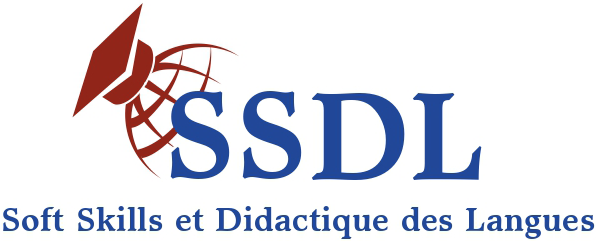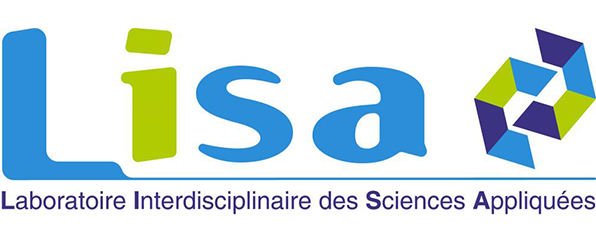


CIMAPERF’24


Appel à Communication
Argumentaire :
L’entrepreneuriat et l’innovation sont deux concepts étroitement liés qui jouent un rôle crucial dans le développement économique et social. Ils sont essentiels pour la création de nouveaux emplois, la stimulation de la croissance économique et la résolution de problèmes de société. Ces domaines ont connu une évolution significative ces dernières années, avec l’émergence de nouvelles méthodes et pratiques. Ce colloque offre une occasion unique de discuter des avancées récentes et des tendances actuelles dans ce domaine en réunissant des experts, des chercheurs et des praticiens.
L’entrepreneuriat peut être défini comme le processus par lequel une personne identifie une opportunité d’affaires, mobilise les ressources nécessaires et crée une entreprise ou une activité économique. Cela implique la prise de risques, l’innovation, la créativité et la capacité à saisir les opportunités. Les entrepreneurs sont des individus visionnaires qui cherchent à apporter de la valeur à la société en exploitant de nouvelles idées et en créant des solutions novatrices.
L’innovation joue un rôle essentiel dans le domaine de l’entrepreneuriat. Elle permet aux entrepreneurs de proposer des produits, des services ou des modèles économiques nouveaux et uniques. L’innovation peut prendre différentes formes, telles que l’innovation technologique, l’innovation sociale ou l’innovation organisationnelle. Elle favorise la compétitivité des entreprises, crée de la valeur ajoutée et favorise la croissance économique. Dans un environnement en constante évolution, l’innovation est essentielle pour maintenir la pertinence et la durabilité des entreprises.
Le domaine de l’entrepreneuriat et de l’innovation connaît plusieurs tendances actuelles qui façonnent son développement. Parmi ces tendances, il y a l’émergence de l’entrepreneuriat social, qui vise à créer des entreprises à impact social positif. Les nouvelles technologies et l’innovation digitale jouent également un rôle majeur, avec l’utilisation de l’intelligence artificielle, du Big Data et de la blockchain. De plus, le financement des startups est devenu plus accessible grâce à l’émergence de nouveaux modèles de financement tels que le financement participatif. Enfin, les écosystèmes entrepreneuriaux se développent dans de nombreuses régions du monde, favorisant la collaboration, l’échange de connaissances et le partage de ressources entre les entrepreneurs.
Tout ce qui vient d’être cité prend de l’ampleur dans un contexte de plus en plus compliqué et complexe, marqué par une concurrence acharnée et l’émergence des crises de différentes formes. D’où l’intérêt majeur de la quatrième édition du colloque international du Management de la performance qui rassemblera des chercheurs de différents domaines scientifiques pour débattre autour de l’Entrepreneuriat et l’Innovation dans un contexte de Résilience.
Axes du colloque :
- Résilience et innovation entrepreneuriale.
- Ecosystèmes entrepreneuriaux.
- Entrepreneuriat social.
- Société d’innovation et attraction des territoires.
- Entrepreneuriat féminin.
- Management de l’innovation.
- Technologie et innovation Entrepreneurial.
- Financement des startups.
- L’entrepreneuriat éducatif.
- Innovation dans le système de l’enseignement supérieur/secondaire.
- Partenariat au service de l’innovation (public, privée, université, …).
- Innovation et gestion de crise.
- Benchmark et bonnes pratiques.
- Résilience et gestion de la crise.
Soumission des communications :
- Procédures de soumissions
Les communications pourront porter sur des réflexions théoriques, des travaux pratiques ou des études empiriques. Les auteurs sont invités à envoyer la version courte et intégrale (Format Word) à l’adresse : cimaperf@uhp.ac.ma
- Instructions aux auteurs
La version courte (4 à 5 pages) doit être envoyée avant le 30 juin 2024, rédigée selon le format Times New Roman, police 12, interligne 1,5 (marges : 2,5) et en français ou en anglais y compris une première page comprenant :
- Titre de la communication
- Noms des auteurs et appartenance (Université, Laboratoire, Pays…)
- Téléphone, adresse électronique, adresse postale…
- Axe de la communication
- Résumé de 10 à 15 lignes en français et en anglais
- Mots clés en français et en anglais (4 à 8)
- Langue de communication : Français, anglais et arabe.
La version Intégrale de la communication (8 à 10 pages) doit être envoyée avant le 15 septembre 2024 à l’adresse suivante : cimaperf@uhp.ac.ma et doit respecter le Template IEEE.
- Inscription
La participation prendra effet après l’envoi d’un mail de confirmation de participation à l’adresse suivante : cimaperf@uhp.ac.ma
Comité d’Honneur
Pr. Abdellatif Moukrim, Président de l’Université Hassan 1er - Settat (Maroc)
Pr. Mohammed SADIK, Directeur de l’ENSA de Berrechid - Settat (Maroc).
Comité d’Organisation
Présidente du Comité d’Organisation
Pre. Razane CHROQUI, Université Hassan 1er – Settat (Maroc).
Coordonnateur du Colloque
Pr. Driss HARRIZI, Université Hassan 1er – Settat (Maroc).
Comité « Programme »
- Mounia BENJELLOUNE, Université Hassan 1er – Settat (Maroc)
- Mohammed RAJAA, Université Abdelmalek Essaadi – Tétouan (Maroc)
- Saida TAYOUB, Université Hassan 1er – Settat (Maroc)
- Taoufik MOUHIB, Université Hassan 1er – Settat (Maroc)
- Tarik RAFFAK, Université Hassan 1er – Settat (Maroc)
- Hanane RIDA CHAFII, Université Hassan 1er – Settat (Maroc)
- Jihane ELFAROUK, Université Hassan 1er – Settat (Maroc)
Comité « Publication »
- Driss HARRIZI, Université Hassan 1er – Settat (Maroc)
- Larbi ELHOUDANI, COPE – Rabat (Maroc)
- Salma El IBRAHIMI, Université Hassan 1er – Settat (Maroc)
- Mohammed RAJAA, Université Abdelmalek Essaadi – Tétouan (Maroc)
- Abderrahmane SAKOUILI, Université Internationale de Casablanca (Maroc)
- Razane CHROQUI, Université Hassan 1er – Settat (Maroc)
Comité d’Organisation Junior
- Abdelouahed JITTOU, Université Hassan 1er – Settat (Maroc)
- Chaimaa ZOUAKI, Université Hassan 1er – Settat (Maroc)
- Hibba SOUAADE, Université Hassan 1er – Settat (Maroc)
- Hicham BOUSTANE, Université Hassan 1er – Settat (Maroc)
- Siham JAMIL, Université Hassan 1er – Settat (Maroc)
- Houda KRABTI, Université Hassan 1er – Settat (Maroc)
- Hicham MJID, Université Hassan 1er – Settat (Maroc)
- Tarik TALII, Université Hassan 1er – Settat (Maroc)
- Brahim HDA, Université Hassan 1er – Settat (Maroc)
- Rihab BOUMEHDI, Université Hassan 1er – Settat (Maroc)
- Ibtissam SOHAB, Université Hassan 1er – Settat (Maroc)
- Ilyass EL IDRISSI RAJI, Université Hassan 1er – Settat (Maroc)
- Halima Essediya FERRAQ, Université Hassan 1er – Settat (Maroc)
Comité Scientifique
- Emile Michel HERNANDEZ, Professeur agrégé des universités, URCA (France)
- Ahmed Mohamedou EL MOUSTAPH, Université de Nouakchott- Nouakchott (Mauritanie)
- Assane FALL, Université de Cheik Anta Diop de Dakar – Dakar (Sénégal)
- Driss HARRIZI, Université Hassan 1er – Settat (Maroc).
- Emma SARNO, Université l’Orientale – Naples (Italie)
- Ersilia Francesca, Université l’Orientale – Naples (Italie)
- Felix NTEP, Gaston Berger – Saint-Louis (Sénégal)
- Juliana HADJITCHONEVA, New Bulgarian University – Sofia (Bulgaria)
- Larbi ELHOUDANI, COPE – Rabat (Maroc)
- Mohammed RAJAA, Université Abdelmalek Essaâdi- Tanger (Maroc)
- Abderrahmane SAKOUILI, Université Internationale de Casablanca (Maroc)
- Mohamédoune WANE, Université de Nouakchott- Nouakchott (Mauritanie)
- Mounia BENJELLOUNE, Université Hassan 1er – Settat (Maroc)
- Nene KANE, Université de Nouakchott – Nouakchott (Mauritanie)
- Razane CHROQUI, Université Hassan 1er – Settat (Maroc)
- Sorina CHIPER, Université Alexandru Ioan Cuza – Iasi (Roumanie)
- Yomna El Hissi, Université Sultane My Slimane de Ben Mellal (Maroc)
- Leila SKALLI, Université Hassan 1er -Settat (Maroc)
- Fatima ezzahra KEMAL, Université Hassan 1er -Settat (Maroc)
- Meriam Dekri, Fsjes, Marrakech (Maroc)
- Ouahraoui Fatima,ENCG, Agadir (Maroc)
- Ryahi Abdellatif, Université Hassan 1er -Settat (Maroc)
- Saida Tayoub, Université Hassan 1er -Settat (Maroc)
- Hanaa BENCHRIFA, Université Hassan II, Casablanca (Maroc)
- Karima TOUILI, Université Hassan 1er -Settat (Maroc)
- Ibrahim TOURE, l’Université des Sciences Juridiques et Politiques de Bamako (Mali)
- Noureddine DAFI, FSJES, Kelâa des Sraghna, Université Kadi Ayyad (Maroc)
Dates Importantes
-
30 JuinSoumission de la version courte
-
15 JuilletNotification aux auteurs
-
15 SeptembreRéception de la version intégrale
-
15 OctobreNotification aux auteurs
-
21-22 NovembreDate de du colloque



